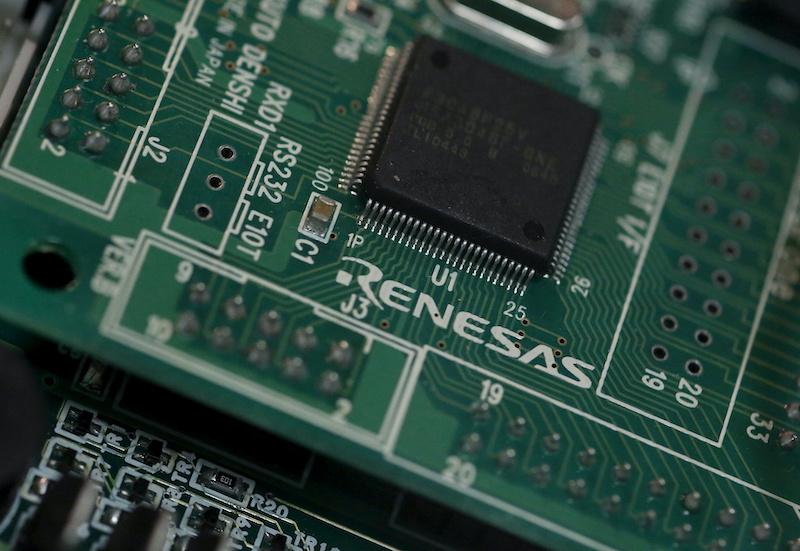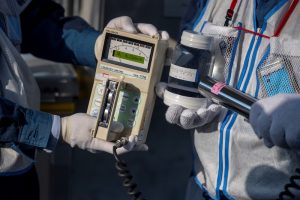Japanese chipmaker Renesas Electronics Corp and component maker Murata Manufacturing Co Ltd both suspended some operations on Thursday after an earthquake jolted the country’s northeast, in the latest blow to the global auto supply chain.
Renesas, which has been plagued by past stoppages, has emerged as a critical chokepoint for global automakers.
It makes nearly a third of the microcontroller chips used in cars around the world. Murata is one of the world’s top suppliers of the ceramic capacitors used in smart phones, computers and cars.
While neither is a household name in the West along the lines of a Sony Group Corp or a Panasonic Corp, they are examples of the many Japanese firms that have retained dominance in highly specialised technology even as the country’s standing in consumer electronics has diminished.
Also on AF: China Stocks Extend Surge on State Backing, Ukraine Hopes
Renesas said it had temporarily halted production at two semiconductor plants and partially stopped output at a third.
Among them was its advanced 300 millimetre wafer Naka plant in Ibaraki prefecture, which supplies semiconductors to auto companies around the world that have already had to curb output because of chip shortages resulting from Covid-19 related disruptions.
“We are assessing the impact of the earthquake on our overall supply chain,” it said in a statement, adding workers were assessing damage at the plant including in the sensitive clean rooms.
A fire at the Naka plant last year hit production for months and reverberated across the industry.
Ford Hit By Renesas Fire
Ford Motor Co said as much as 80% of its lost vehicle production in the second quarter of last year was due to the Renesas plant fire.
Murata said it had suspended operations at four factories following the quake and that a fire had broken out at one producing chip inductors for smartphones and cars. The fire was later extinguished, it added.
Highlighting the strain on the auto industry, Japan’s largest automaker, Toyota Motor Corp, said its global production target would be 10% lower in May and 5% lower in June than previously estimated.
The revised estimates did not include the impact of the quake, it said.
- Reuters with additional editing by Sean O’Meara
Read more:
Emerging Asia Bonds Attract Inflows for 21st Straight Month
Shenzhen Authorities Plan an ‘Orderly’ Return to Work























